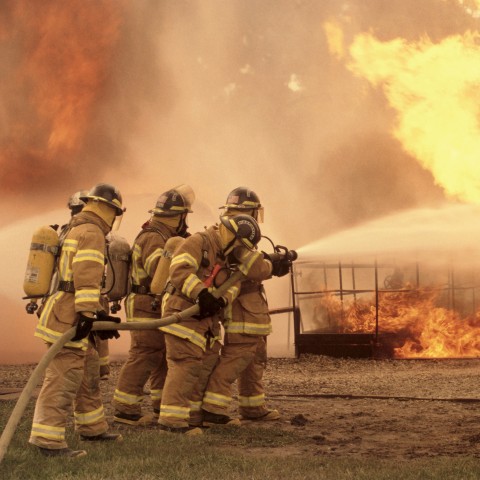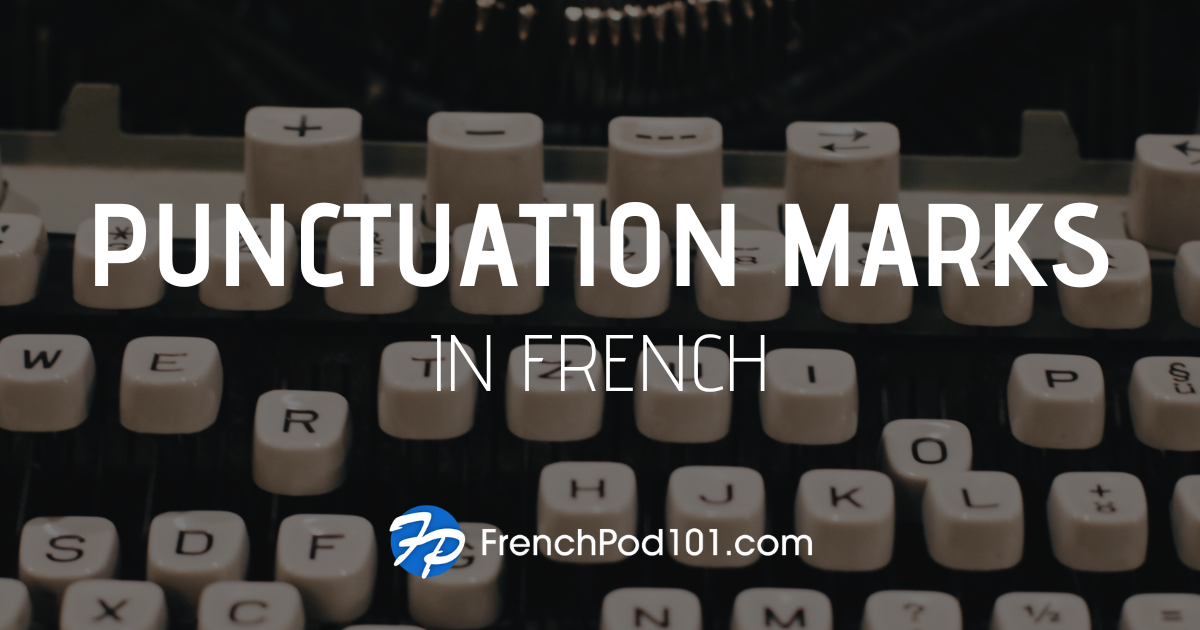
Why are proverbs so popular? As old-fashioned as they can be, you read, hear, and use them on a daily basis. They reflect who we are and the values we stand for. They’re timeless and comforting, never seem to age, and always bring this old magical wisdom that helps us go through life.
Personally, what I find fascinating about proverbs is how they serve as a window to different cultures. When I hear Chinese, Russian, or Indian proverbs, I feel like I’m entering a whole new world with a wildly different culture and mindset to learn from.
French proverbs are no different, and this is what I’m offering you in this article: a window to popular French wisdom, made up of common proverbs and old sayings. They might not instantly make you wiser, but I’m hoping they’ll get you curious to learn more about the culture and history of France.

Be wise as a French owl!
 Table of Contents
Table of Contents
- Proverbs About Wisdom
- Proverbs About Success
- Proverbs About Life
- Proverbs About Family & Friends
- A Few More Proverbs for the Road?
- Le mot de la fin
1. Proverbs About Wisdom
Speaking of wisdom, let’s begin by looking at some proverbs in French that touch on how to live life wisely.
#1
| French | Il ne faut pas vendre la peau de l’ours avant de l’avoir tué. |
| Literally | “Don’t sell the bear’s hide before you’ve killed the bear.” |
| Equivalent | Don’t count your chickens before they hatch. |
| This traditional saying comes from Old French. It means that you should wait to act until you know that something is certain. Ne vendons pas la peau de l’ours avant de l’avoir tué, on ne sait pas encore si elle va gagner. “Let’s not count our chickens before they hatch; we don’t know yet if she will win.” | |
#2
| French | L’argent ne fait pas le bonheur. |
| Equivalent | “Money cannot buy happiness.” |
| Nearly identical to its English counterpart, this expression means that although money lets you buy things, it’s not enough to achieve happiness. The most materialistic people often follow it with mais il y contribue (“but it contributes to it”). Benjamin Franklin would argue: “Money never made a man happy yet, nor will it. The more a man has, the more he wants.” | |
- → Whether you’re dead broke or crazy rich, you’ll find everything you need to talk about money in French in our free vocabulary list on FrenchPod101.com.
#3
| French | Il n’y a que les imbéciles qui ne changent pas d’avis. |
| Literally | “Only fools never change their minds.” |
| Equivalent | A wise man changes his mind, a fool never will. A foolish consistency is the hobgoblin of little minds. (Emerson) |
| Our opinions may vary, and people clinging to their believes or decisions when they have every reason not to are being stupid. We use this proverb to point out stubbornness or to justify changing our minds. A: Je pensais que tu ne voulais pas lire ce livre. (“I thought you didn’t want to read that book.”) B: Il n’y a que les imbéciles qui ne changent pas d’avis. (“Only fools never change their mind.”) | |
#4
| French | On n’apprend pas au vieux singe à faire la grimace. |
| Literally | “We don’t teach the old monkey to make a face.” |
| Equivalent | This old dog knows all the tricks. |
| You don’t need to teach something to someone who has much more experience than you have. We typically use this expression when someone with less experience or knowledge is trying to explain something we find obvious or easy. | |
#5
| French | Il n’y a que la vérité qui blesse. |
| Literally | “Only the truth hurts.” |
| Equivalent | Truth hurts. |
| If you feel offended by a statement or reproach, it only proves that it was true. The most hurtful comments are the ones we deserve. This expression is often used as a taunt, or when someone is denying their fault or wrongdoing and acting offended by the accusation. | |
#6
| French | La vengeance est un plat qui se mange froid. |
| Equivalent | “Revenge is a dish best served cold.” |
| Vengeance is more satisfying when delayed and exacted with a clear head. You’ll take more pleasure if you wait until the heat of anger has cooled off, rather than take revenge as an immediate act of rage. There’s a common misconception about the origin of this quote, with many people claiming that it’s from the French novel Les Liaisons Dangereuses (“Dangerous Liaisons”) by Choderlos de Laclos. But the phrase actually appears in none of De Laclos’ work. As it stands, its origin remains unknown. | |

The old dog knows all the tricks.
2. Proverbs About Success
We all have our own definitions of success, defined by our personal goals and our outlook on the world. Here are a few French proverbs and sayings that speak on success in its many forms—and how to attain it!
#1
| French | À vaincre sans péril, on triomphe sans gloire. |
| Literally | “To win without risk is a triumph without glory.” |
| Equivalent | No guts, no glory. |
| Success won’t come if you’re not brave enough to take risks. This is a quote from Le Cid, a five-act French tragicomedy written by Pierre Corneille. The whole book is written in alexandrines (lines of verse always composed of twelve syllables), which is quite impressive! | |
#2
| French | Il ne faut pas mettre la charrue avant les bœufs. |
| Literally | “You should not put the cart before the oxen.” |
| Equivalent | Don’t put the cart before the horse. |
| This expression from the fifteenth century means that you shouldn’t go so fast that you fail to do things in the right order. Literally, it means that it makes no sense to have the cart placed before the oxen if the oxen are supposed to pull the cart. It’s often used to temper someone’s enthusiasm by reminding them to take their time and start at the beginning. | |
#3
| French | On n’est jamais mieux servi que par soi-même. |
| Literally | “You are never served better than by yourself.” |
| Equivalent | If you want something done right, do it yourself. |
| If you want something done exactly the way you want it, you should just do it yourself. This is a quote from the play Bruis et Palaprat (1807) by Charles-Guillaume Étienne. | |
#4
| French | Qui ne risque rien n’a rien. |
| Literally | “Who’s not risking anything gets nothing.” |
| Equivalent | Nothing ventured, nothing gained. |
| One must take risks to achieve something. If you don’t risk anything, you won’t get anything good. Quit that boring nine-to-five job, grab your backpack, and chase your dreams! Success is never guaranteed, but laying still will never take you anywhere. | |
#5
| French | Ne remets pas à demain ce que tu peux faire aujourd’hui. |
| Equivalent | “Don’t put off until tomorrow what you can do today.” (Benjamin Franklin) |
| No time like the present! You shouldn’t delay doing something if you can do it right now. This quote is a powerful mantra for serial procrastinators. I should get it as a tattoo. | |
#6
| French | C’est en forgeant qu’on devient forgeron. |
| Literally | “It is by forging that you become a blacksmith.” |
| Equivalent | Practice makes perfect. |
| To really become proficient at something, you need practice and not just theory. | |
#7
| French | À cœur vaillant rien d’impossible. |
| Literally | “To a valiant heart, nothing is impossible.” |
| Equivalent | – |
| A brave heart can accomplish anything. With enough courage, one can do the impossible. This quote was the motto of Jacques Cœur (1395 – 1456), silversmith for the French king Charles VII. | |
- → Eager for more inspiring words of wisdom? Don’t miss our vocabulary list of the Top 11 Quotes About Success.

« À cœur vaillant rien d’impossible. »
3. Proverbs About Life
We could all use a little guidance now and then as we navigate this thing called life. And more often than not, we end up looking to the wisdom of our predecessors for that extra insight. Here are a few common French proverbs about life that offer just that!
#1
| French | Chat échaudé craint l’eau froide. |
| Literally | “A scalded cat fears cold water.” |
| Equivalent | Once bitten, twice shy. |
| This is what you’d say if you were scared of doing something again because you previously had an unpleasant experience doing that thing. Bad experiences make us cautious, and sometimes even overly cautious. Likewise, the cat that got splashed with hot water will be scared of water, whether it’s hot or cold. | |
#2
| French | On ne change pas une équipe qui gagne. |
| Literally | “One does not change a winning team.” |
| Equivalent | If it ain’t broken, don’t fix it. |
| The English equivalent is pretty self-explanatory: There’s no need to make any changes to something that’s already working well. Le prochain John Wick sera encore réalisé par David Leitch et Chad Stahelski. On ne change pas une équipe qui gagne ! “The next John Wick movie will again be directed by David Leitch et Chad Stahelski. You don’t change a winning team!” | |
#3
| French | Il vaut mieux prévenir que guérir. |
| Literally | “It is better to prevent than to heal.” |
| Equivalent | Better safe than sorry. |
| You might use this proverb when it seems wiser to be careful and protect yourself instead of taking unnecessary risks. Je sais qu’il fait beau mais je vais prendre mon parapluie. Mieux vaut prévenir que guérir ! “I know it’s sunny, but I’ll take my umbrella anyway. Better safe than sorry!” | |
#4
| French | Il n’y a pas de fumée sans feu. |
| Literally | “There is no smoke without fire.” |
| Equivalent | Where there is smoke, there is fire. |
| If there’s any sign of something being true, then it must be at least partly true. Je ne crois pas aux théories du complot mais il n’y a pas de fumée sans feu. “I don’t believe in conspiracy theories, but where there is smoke, there is fire.” | |

« Il n’y a pas de fumée sans feu. »
4. Proverbs About Family & Friends
Wherever you live in the world, relationships are an essential part of everyday life. Gain some extra perspective on the topic with these French proverbs about family and friends.
#1
| French | Qui aime bien châtie bien. |
| Literally | “Who loves well, punishes well.” |
| Equivalent | Spare the rod and spoil the child. |
| This proverb is originally translated from Latin: “Qui bene amat, bene castigat.” It’s sometimes attributed to classical Greek philosopher Socrates. This is a bit different from the English equivalent. “Spare the rod and spoil the child,” implies that if you don’t punish a child when they do something wrong, they will never learn what’s right. In the French expression, we mean that when you love someone, you’ll punish them proportionally to their wrongdoing instead of being too harsh or ignoring their fault. If you don’t like someone, you’re more likely to be indifferent when they do wrong—but the behavior of your loved ones matters to you. | |
#2
| French | Qui se ressemble s’assemble. |
| Literally | “Those who look alike get together.” |
| Equivalent | Birds of a feather flock together. |
| People with similar interests or character tend to gather and spend time with each other. This proverb is often used pejoratively when disapproving of a shared characteristic or interest. | |
#3
| French | Mieux vaut être seul que mal accompagné. |
| Equivalent | “Better to be alone than in bad company.” |
| Identical to its English equivalent, this quote by Pierre Gringore reminds us that it’s pointless to seek company at all cost. If you can only be in bad company, you should rather be alone and enjoy yourself in the comfort of your mind palace. | |
#4
| French | Les bons comptes font les bons amis. |
| Literally | “Good accounts make good friends.” |
| Equivalent | Fast pay makes fast friends. |
| To preserve friendship, quickly pay your debts. Friendship and money never combine gracefully, so as Benjamin Franklin would say: “Never keep borrowed money an hour beyond the time you promised.” (Yes, I’m a Ben Franklin fan, he’s so quotable!) | |
#5
| French | Les chiens ne font pas des chats. |
| Literally | “Dogs don’t breed cats.” |
| Equivalent | The apple doesn’t fall far from the tree. |
| Children usually have similar characteristics or qualities to those of their parents. This expression can be used to highlight the parents’ talents: Elle joue déjà très bien de la guitare. Les chiens ne font pas des chats. “She’s playing guitar very well. The apple doesn’t fall far from the tree.” Or it can be used pejoratively: Il a un sale caractère. Les chiens ne font pas des chats. “He’s got a bad temper. The apple doesn’t fall far from the tree.” | |
- → Eager to learn more great quotes and proverbs? Have a look at our collections of the top quotes on Family and Friendship on FrenchPod101.com.

« Qui se ressemble s’assemble. »
5. A Few More Proverbs for the Road?
#1
| French | Rien ne sert de courir, il faut partir à point. |
| Literally | “It’s useless to run. You should start on time.” |
| Equivalent | Slow and steady wins the race. |
#2
| French | Il n’y a que celui qui ne fait rien qui ne se trompe jamais. |
| Literally | “Only those who do nothing never fail.” |
| This is sometimes used as a motivational quote when starting a new business or career. | |
#3
| French | Chassez le naturel, il revient au galop. |
| Literally | “Chase away the natural and it returns at a gallop.” |
| Equivalent | A leopard cannot change its spots. |
| If you go against your nature, it will never last. | |
#4
| French | A cheval donné, on ne regarde pas les dents. |
| Literally | “When given a horse, don’t look at its teeth.” |
| Equivalent | Never look a gift horse in the mouth. |
| This is said to advise someone not to refuse something when it’s offered. | |
#5
| French | Il n’est pire aveugle que celui qui ne veut pas voir. |
| Literally | “There is no worse blind man than the one who doesn’t want to see.” |
| Equivalent | You cannot reason with someone who’s not interested in the truth. |
#6
| French | Vouloir, c’est pouvoir. |
| Literally | “To want is to be able to.” |
| Equivalent | Where there is a will, there is a way. |
#7
| French | Après la pluie, le beau temps. |
| Literally | “After the rain, the good weather.” |
| Equivalent | Every cloud has a silver lining. |
#8
| French | On ne fait pas d’omelette sans casser d’oeufs. |
| Literally | “You don’t make omelets without breaking some eggs.” |
| Equivalent | No pain no gain. |
| You cannot achieve great things without making sacrifices. | |
6. Le mot de la fin
In this guide, you’ve learned about the most important French proverbs on a variety of topics, from wisdom to relationships. Did I forget any important proverb that you know? Or maybe you know some cool saying on a different topic? Make sure to share them with our community in the comments below!
If you enjoyed this lesson, FrenchPod101 also has tons of vocabulary lists with audio recordings, as well as free resources to boost your studies and keep your French learning fresh and entertaining!
Remember that you can also use our Premium PLUS service, MyTeacher, to get personal one-on-one coaching and have your private teacher practice with you. They’ll use assignments, personalized exercises, and recorded audio samples to help you improve your French skills like never before. Happy learning on FrenchPod101.com!
About the Author: Born and bred in the rainy north of France, Cyril Danon has been bouncing off various jobs before he left everything behind to wander around the wonders of the World. Now, after quenching his wanderlust for the last few years, he’s eager to share his passion for languages.










